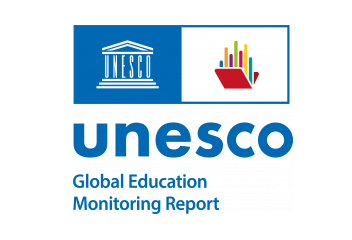Call for expressions of interest - 2024/5 Global Education Monitoring Report on leadership
I. Summary
The 2024/5 Global Education Monitoring (GEM) Report will focus on leadership aiming to address the following questions:
- Role: What are the requirements of good leadership in education and how do they vary between countries and over time?
- Influence: What vision and goals drive leadership in education and what are the signs of exercising positive influence?
- Impact: To what extent and through what practices does the exercise of leadership contribute to better education outcomes?
- Context: What social, cultural, governance or other preconditions are needed for the effective exercise of leadership in education?
- Nurture: What policy levers can be used to help develop leadership skills and how do such policies emerge around the world to respond to need?
II. Call for expressions of interest Requirements
The GEM Report team wishes to invite interested individuals and organizations to contribute to the preparation of background papers to inform the research in one of the areas highlighted below. Research that will have a comparative perspective covering countries will be prioritised.
As described in the concept note, the GEM Report 2024/5 will focus on 5 thematic areas, organized under 3 main parts, across all levels of education.
Leadership within education institutions
1. School leadership roles and standards
- Skills (related to people, instruction and organization) and contexts related to enacting leadership.
- Evidence on the impact of leadership (and of leader characteristics) on the achievement of individual and community education outcomes
- Standards of school leadership and links to governance and accountability regimes
2. Policies on school leader selection, preparation, development
- Appointment processes and practices, talent management systems, alternative paths, locally and central decisions and requirements
- Working conditions, remuneration, non-pecuniary incentives and workplace satisfaction
- Initial preparation programmes, characteristics (duration, timing, sector, location, modality, content, coaching and mentoring), and impact
- Professional development programmes (coverage, offer of practicums, responsiveness to the needs, emphasis on instructional leadership, and the degree of formality as opposed to more collaborative approaches)
3. Teachers, community and school leaders
- Middle leaders (curriculum or grade)
- School management committees and boards
- Students leadership
Leadership at the education system level
4. System leaders at local and central level
- District education officers, inspectors, supervisors, superintendents
- Ministries of education and national implementation agency officials
Leadership outside the education system
5. Political and non-state leaders
- Political leaders (executive and legislative) vision and tradeoffs with short-term considerations (tenures, coalitions vested interests)
- International organization influence in inspiring education change
- Non-state actors: civil society organizations, activists, teacher unions, employer organizations, think tanks and academics, intellectuals, media
III. Submission of expression of interest
Expression of interest should include:
- A maximum 3-page file including the technical proposal aligned with one or more of the above thematic area, including: a brief description of past experience on implementing research work of similar nature to this required research, proposed methodology, a financial proposal, geographical scope, a suggested timeline and workplan;
- Full CVs of experts involved in the project, including academic record and list of publications, research grants and projects);
- Only for legal entities: proof of registration as a non-governmental/private organisation including copies of registration certificate(s). Please place the proposal on your organisation’s letterhead.
Selection criteria
- Proven record in the field of research in education and leadership
- Consistency with the approach outlined in the concept note and alignment of the expression of interest with one or more of the above themes
- Capacity of the organisation or individual expert to implement the project
- Comprehensiveness of the project proposal including the workplan and budget
- Staff expertise and competencies based on the track record and past experiences
- Capacity to draft to a high standard in one of the UNESCO working languages, English, or French.
The proposed timeline for reviewing and providing feedback to the submitted contributions is:
- 20 February 2023: Call for expressions of interest published
- 20 March 2023: Deadline for any requests for additional information/clarifications
- 10 April 2023: Deadline to submit expressions of interest
- 24 April 2023: Finalization of review of submissions
- 28 April 2023: Notification of outcome and beginning of negotiation for contracting
Successful contributions may result in commissioned background papers. Commissioning will take place in May 2023 and papers commissioned are expected to be completed by December 2023.
Please send your Expression of interest in English or French by 10 April 2023 (midnight CEST), along with the attachments in one PDF file, to gemrpost@unesco.org, using the subject line “EOI 2024/5 GEM Report“. Please also specify in your proposal if you are applying as an individual or an entity.

